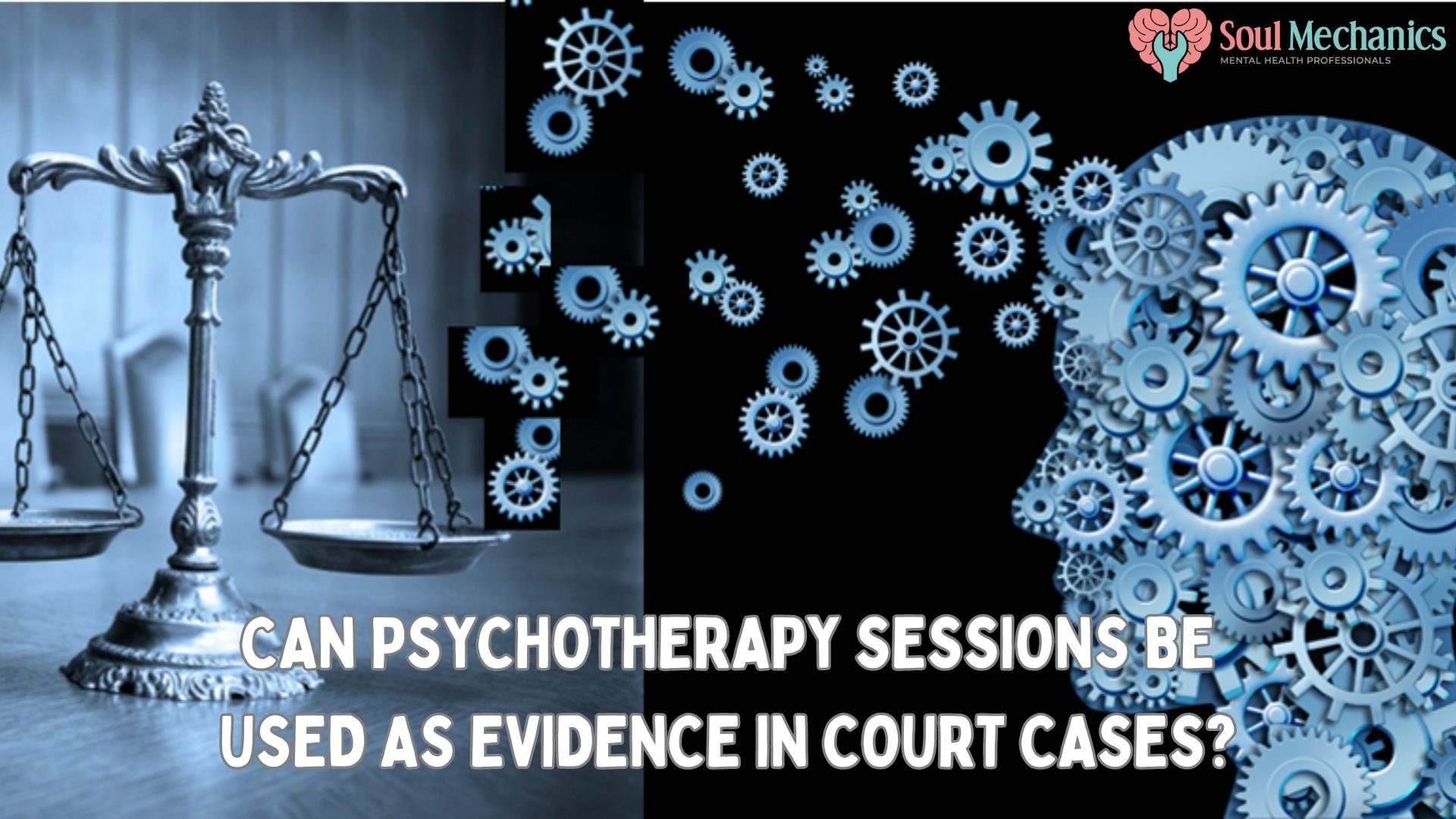Can Psychotherapy Sessions Be Used as Evidence in Court Cases?
Can Psychotherapy Sessions Be Used as Evidence in Court Cases?

Written By: Kelly Chan Jia Li, Clinical Psychologist (MAHPC(CP)00353)
In law and justice, evidence plays a critical role in determining the outcome of court cases. Evidence can take various forms, such as documents, witness testimonies, and physical proof. But what about the information shared in psychotherapy sessions? Can the psychotherapy sessions or confidential conversations with a therapist be used as evidence in court cases? This article explores the complex interplay between psychotherapy and the legal system.
The Nature of Psychotherapy

Psychotherapy, or “talk therapy”, is a confidential and therapeutic process between a therapist and their client. The main principle of this process is confidentiality, which is crucial for building trust and fostering open communication. The mental health professional is bound by ethical and legal obligations to keep the information shared during these sessions private.
In a legal context, confidentiality is designed to protect specific types of confidential communications. Psychotherapy privilege, also known as the therapist-client privilege, is one such protection. However, the privilege is not absolute and can be subject to exceptions. There are certain situations in which the confidentiality of therapy sessions can be breached. This makes it possible for the information shared in these sessions to be used as evidence in court cases under specific circumstances.
1. Imminent Harm:
If a therapist believes that the client poses an imminent danger to themselves or others, they have a legal and ethical duty to break confidentiality to prevent harm. For instance, if a client reveals plans to harm someone or themselves, the therapist will be obligated to report this to the authorities or family members.
2. 儿童 Abuse or Neglect:
Therapists are mandated reporters, which means they must report suspected child abuse or neglect to the appropriate authorities. If a client discloses information indicating that a child is at risk, the therapist must report it.

3. Mental Health Evaluations for Court:
In rare cases, a court may order the release of therapy records if the client’s mental state is directly relevant to the legal matter. For instance, it could be necessary to determine a person’s competence to stand trial.
4. Criminal Proceedings:
A defendant’s mental state can be relevant to their defence in criminal cases. In these situations, a judge may order the release of therapy records to determine whether the defendant’s mental health played a role in the alleged criminal behaviour.
Examples of Psychotherapy in Court Cases
To illustrate the scenarios in which psychotherapy sessions might be introduced as evidence in court cases, let’s consider a few hypothetical examples:

1. In a criminal trial, the attorney may claim the defendant is not responsible for their actions due to severe mental illness. In this case, psychotherapy sessions may be used to establish a defence, such as diminished capacity or insanity. The defendant’s attorney may request access to the defendant’s therapy records or evaluation to provide insight into the defendant’s mental state at the time of the alleged crime to support the claim.
2. In child custody cases, one parent claims that the other parent’s mental health issues make them an unfit caregiver. The court may order a psychological evaluation, including access to any relevant therapy records, to assess the parent’s mental state for child custody. The therapist’s evaluation can help inform the court’s decision-making process.
3. In civil litigation cases, psychotherapy sessions may be relevant to demonstrate the emotional distress experienced by the client due to the unjust actions. The therapist’s expert testimony can also provide insight into the impact of the incident on the client’s mental well-being.
Challenges in Using Psychotherapy as Evidence
However, using psychotherapy as evidence in court can present several challenges due to the sensitive and confidential nature of therapeutic sessions. These challenges can affect both the legal proceedings and the individuals’ well-being.
When therapy records or session details are introduced as evidence in court, there will be a breach of confidentiality. This can potentially breach the trust and privacy between the therapist and client, which may deter individuals from seeking therapy in the future. This challenge highlights the importance of strict adherence to legal and ethical guidelines when considering the use of therapy information in court.
The reliability of information obtained from psychotherapy sessions can be a controversial issue. The court may question the accuracy of memories. Besides that, there is a possibility of misinterpretation of client statements. This can raise challenges to the admissibility of therapy-related evidence.
Furthermore, coordinating between the legal and mental health field can be complicated. Legal professionals (e.g., lawyers) may not understand the therapeutic process, while therapists may be unfamiliar with legal standards and requirements. Effective collaboration is essential to address these challenges.

What to conclude?
Psychotherapy sessions are protected by confidentiality privileges that safeguard the information shared between a therapist and their client. However, some exceptions can lead to the therapy records being used as evidence in court cases. These exceptions involve imminent harm, child abuse/neglect, mental health evaluations for court, and criminal proceedings. While using psychotherapy as evidence in court can provide valuable insights into individuals’ mental health and behaviour, it also presents significant challenges related to confidentiality, the reliability of the information obtained in psychotherapy sessions, as well as the complexity of interdisciplinary collaboration between legal and mental health professionals. It is essential for individuals seeking therapy to understand the limits of confidentiality. The protection of a client’s privacy and ensuring justice in the legal system is not as clear-cut as we hope to be, as it varies depending on the specific circumstances of each case.
If you’re looking for a therapist in Kota Damansara or Ipoh area, you can click here for more information.
If you enjoyed reading this, why not broaden the horizon of knowledge by learning about "Unlocking the Secrets of Betrayal: The Forbidden Truth Behind Infidelity!"?
You can read the blog here.
For more content related to mental health do follow us on our official Instagram@soulmechanicstherapygram.

